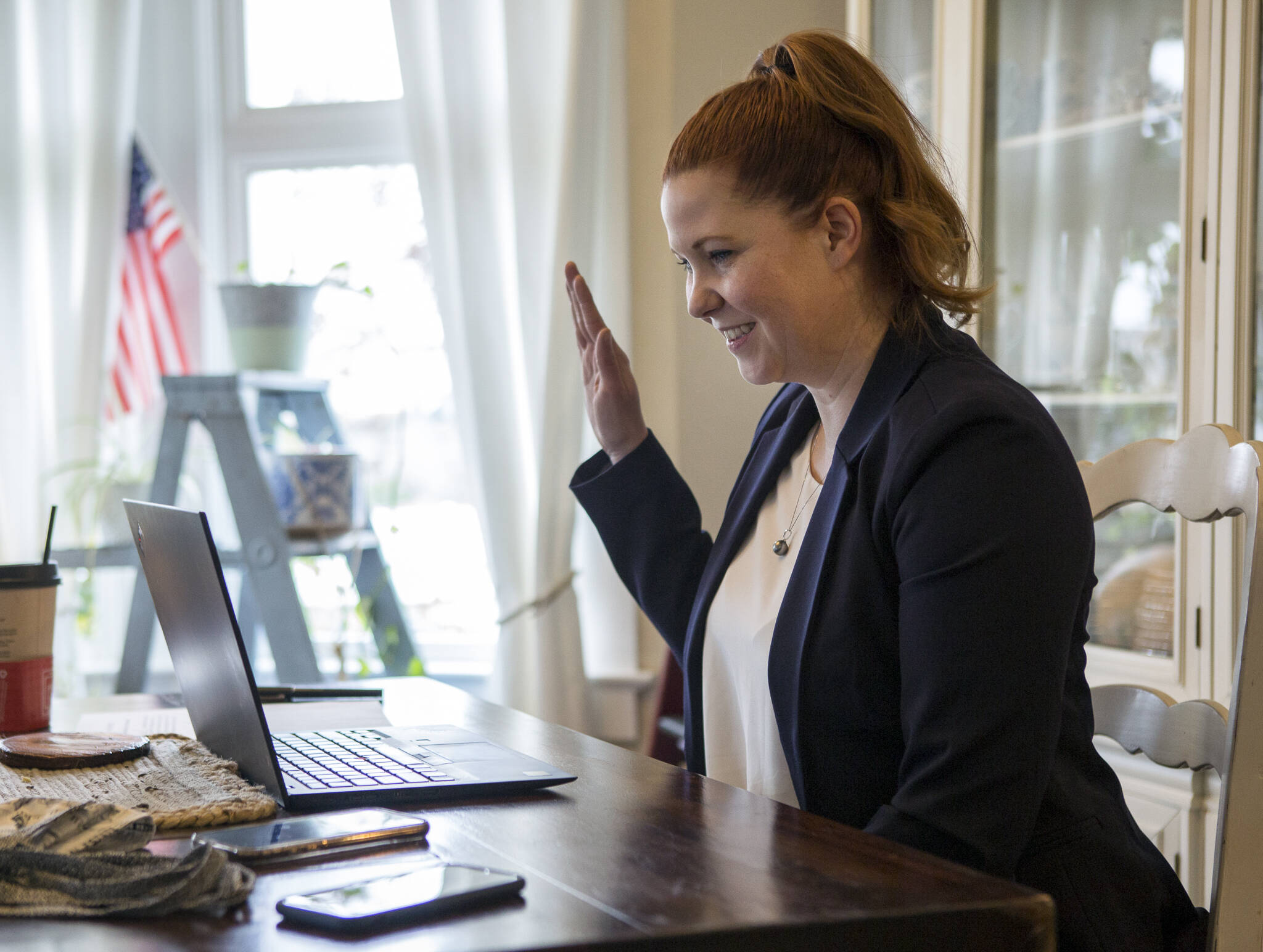By The Herald Editorial Board
The running joke for the last two years of meetings — whether for the work world, government or school — was that our attire resembled a mullet haircut: business on top (in public view) and casual below (where sweatpants or even just underwear were — unless the laptop was toppled by a toddler or a cat — hidden from view).
Even as we happily emerge from our pandemic precautions, our hybrid “mullet-like” attire and use of remote technology for meetings might now become a regular feature and no longer just a workaround. And that’s a good thing for more than a few reasons.
The covid-19 pandemic forced the issue on us, and the necessity of continuing daily business and our representative government required the use of the 21st-century technologies of Internet, computers, smartphones, laptop cameras and online meeting software to allow us to communicate, learn, voice opinions and participate even when we couldn’t be in the same room.
Shown the possibilities, there’s now no reason not to keep remote access to meetings as an option, whether or not circumstances — or a future covid surge — require it.
The technology in the case of local and state government meetings has opened the meeting rooms to nearly all, allowing the participation of those who — because of physical limitations, distance, work schedules, lack of adequate transportation or the obligations of caring for children or family members — were previously rarely able to participate or even guaranteed the ability to listen in or watch a public meeting.
Washington state for more than 50 years has benefited from the provisions of the Open Public Meetings Act, which assures public access to the proceedings of state and local governments and regulates the conduct of meetings and of public officials. However, points out Oskar Rey, formerly the assistant city attorney for Kirkland, in an article for the Municipal Research and Services Center, a nonprofit that advises municipal governments on legal and policy issues, OPMA was written long before terms like internet and smartphone were part of daily language, and the only way to attend a public meeting was to be there in person.
“The OPMA is over 50 years old, but it has not been comprehensively updated to address the revolutionary advancements in computer technology that have occurred in the meantime,” Rey wrote.
That is, until the closing days of the state Legislature’s 60-day session earlier this month.
Among a flurry of adopted legislation was a bill drafted by state Rep. Emily Wicks, D-Everett. Wicks this week announced she will not seek re-election this year to her 38th District seat, but this final piece of legislation will help provide a lasting legacy of public participation in government. House Bill 1329, which is waiting for the governor’s signature, does a few important things to begin to update the OPMA for the 21st century:
It allows governing bodies to provide a remote or hybrid option for meetings after a declared emergency and requires that the public be allowed to listen or watch in real time, a requirement that otherwise could have ended when the governor’s current emergency orders end;
Requires governments to provide an opportunity for remote public comment when requested by an individual;
Requires online public notice of special meetings that will be conducted remotely or with limited in-person attendance.
And after pandemic restrictions are fully lifted, the legislation also encourages — although it doesn’t require — local governments to continue to offer a remote option for real-time participation through online, phone or other available means and to make an audio or video recording of all regular meetings and make it available on websites for at least six months.
“The state Legislature did citizens a favor when it passed (House Bill 1329),” George Erb of the Washington Coalition for Open Government told The Herald’s Jerry Cornfield. “It is one of the more ambitious updates of the state Open Public Meetings Act in recent years … by recognizing the usefulness of digital technology and incorporating some of the civic lessons we learned during the pandemic.”
Yet, implementation and meeting the law’s intent will require follow-through and some financial investment by local governments that haven’t already begun that transition.
Many local governments do appear to be ready to continue offering that remote option, even as meetings again shift to in-person.
Among examples that the MRSC’s Rey points to is Snohomish County.
Along with instructions about how to participate remotely, Snohomish County’s website offers a wealth of information to the public online, including meeting videos, agendas and minutes going back to 2016. A webpage helps residents connect with elected county officials, as well as federal, state and special district officials. And voting records for County Council members are available, dating back to 2004.
Several other local governments continue to offer remote participation and recordings of past meetings, including the cities of Everett, Edmonds, Lynnwood and Marysville; the Everett, Edmonds, Lake Stevens and Marysville school districts; and the ports of Edmonds and Everett; among others.
Maintaining this level of access, or course, also requires the continued roll-out of increased access to broadband internet throughout the county, state and nation, especially in rural areas where lack of adequate broadband coverage and distance from meeting locations conspire against the participation of many.
And it requires our willingness to participate. Governments can make the investments to provide this avenue of participation, but citizens still have to step up to the mic even when its from a laptop.
And, please, when it’s your turn, remember to hit the “unmute” button.
Talk to us
> Give us your news tips.
> Send us a letter to the editor.
> More Herald contact information.

























